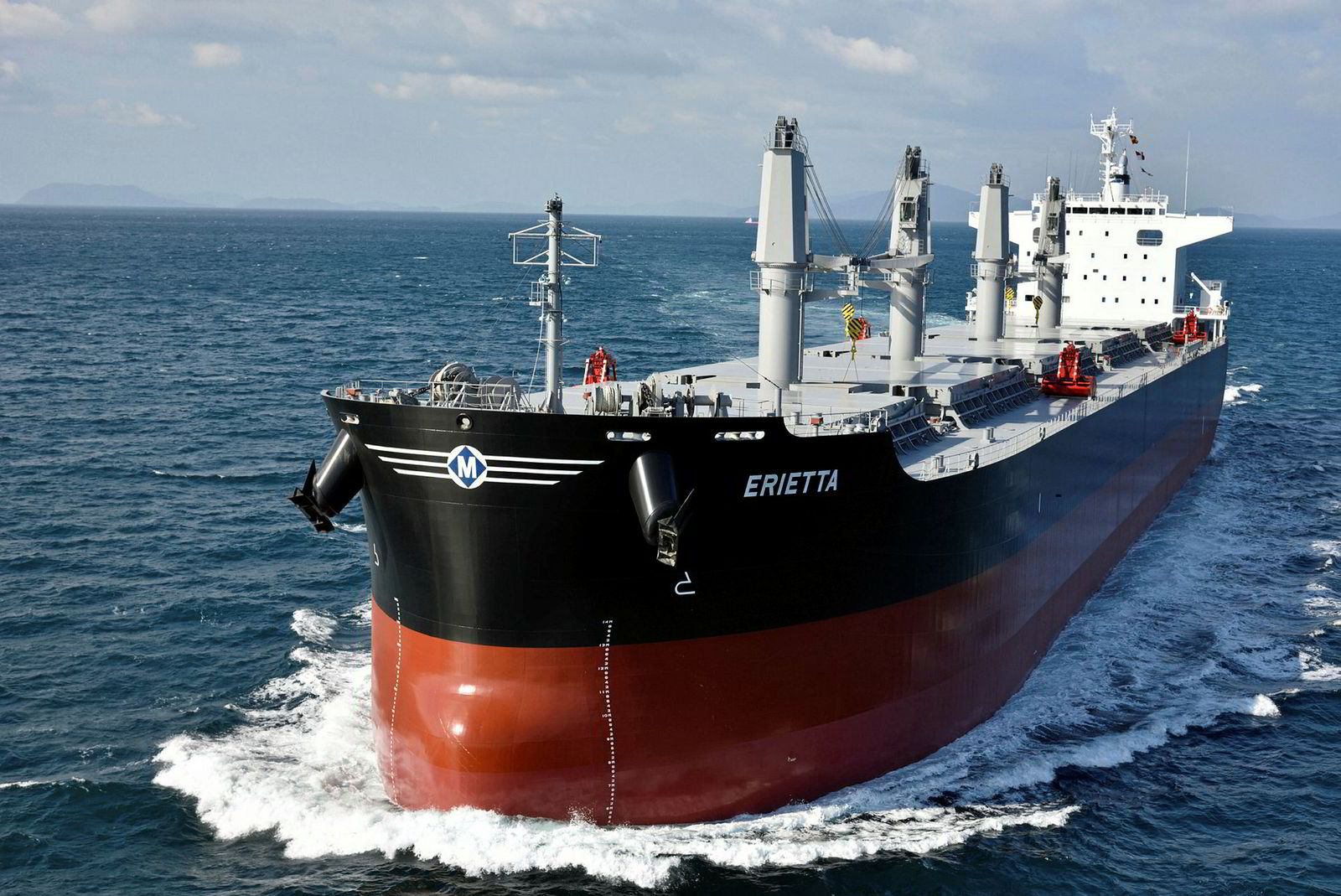Meadway Shipping & Trading (MS&T) was the first Greek shipping company to break ground in Singapore when it opened Meadway Shipping Singapore in 2011.
Costas Delaportas, one of two sons of MS&T founder Dionysios “Dennis” Delaportas who hold senior positions in the company, admits that setting up in the Lion City was not a cheap undertaking, but it was vital for gaining a strong footprint in the Asian dry bulk trades.
“It is expensive but it puts us inside the Asian dry bulk capital," Delaportas said. "Asia now accounts for 60% of our business and it continues to grow in importance."
The Atlantic Basin makes up the bulk of the company’s remaining business.
Delaportas credits Singapore as being part of the reason why MS&T has managed to increase its profitability by 10% year-on-year for the past two years, despite a very challenging operating environment. How much that translates to in cold, hard cash is something that Delaportas does not reveal. As a private company, MS&T does not release its financial results.
Meadway Shipping Singapore looks after Asian commercial operations and vessel chartering. Heading the operation is SY Do, who initially joined as chartering manager in 2011, bringing with him 15 years of experience from South Korean operator STX Pan Ocean.
Annually, it performs contracts of affreightment (COAs) of more than two million tonnes of dry cargo commodities, petroleum coke, fertiliser, grain, coal and mineral products shipped on handymax to kamsarmax tonnage operated either on long-term or short-period charter, as well as on a spot basis.
Customers range from large commodity houses with global transport needs to single commodity producers and end users.
Asia fuelling growth
“Over the past three years, we have done 350 fixtures out of Singapore," Delaportas said. "At any given time, Meadway Singapore controls 25 chartered-in vessels and our aim is to increase this to 35 ships over the next year. This growth is coming from Asia."
"At any given time, Meadway Singapore controls 25 chartered-in vessels and our aim is to increase this to 35 ships over the next year. This growth is coming from Asia."
Long-term period tonnage usually is taken from Japanese owners, with whom Delaportas says the company has established excellent relations.
Meadway Shipping Singapore, as a large dry bulk operator, is a recipient of the Maritime and Port Authority of Singapore’s Maritime Sector Incentive — Approved International Shipping Enterprise (MSI-AIS) Award, giving it tax exemptions on qualifying shipping income. Last month, this was renewed for a further 10 years.
While Meadway Shipping Singapore’s commercial and chartering operations have qualified it for the MSI-AIS scheme, vessel owning activities remain firmly in Greece.
“We have no plans for Meadway Singapore to own ships," Delaportas said. "Maybe at some time in the future it will be something we will consider."
Meadway Shipping & Trading began in 1989 as a shipbroking company and ventured into shipowning several years later with a small, elderly cargoship. Former captain Charalambos Famelos came onboard as a shareholder around that time.
It started amassing its current fleet of 13 ships — two kamsarmax, two ultramax, seven supramax and two handysize bulkers — in the mid to late 2000s, frequently taking advantage of low prices being offered by desperate shipyards.
Several other vessels that had been ordered passed into the hands of F-Marine, a company founded by Famelos when he split with Delaportas in 2012.
Deployment of MS&T’s owned ships covers a wide spectrum, with some out on long-term period, others on spot or short periods or used for its own cargo-carrying requirements.
Delaportas says the company has no plans to order any new ships for now despite yards, especially those in China, offering bargain prices. Like many more conservative shipowners, he believes that adding more ships to the market will have a detrimental effect on any recovery prospects.
He dismisses any suggestion of the recent spike in the Baltic Dry Index as being a sign of a recovery for dry bulk.
“I expect plenty of volatility this year due to an oversupply of commodities," he said. "I do not expect any significant overall improvement."
But Delaportas remains more optimistic about dry bulk prospects for next year.
“The macro-economics point to more stability in Europe and good news is expected from China," he said. "I think there will be a gradual improvement in 2018 as there will be fewer newbuildings coming into the water."





